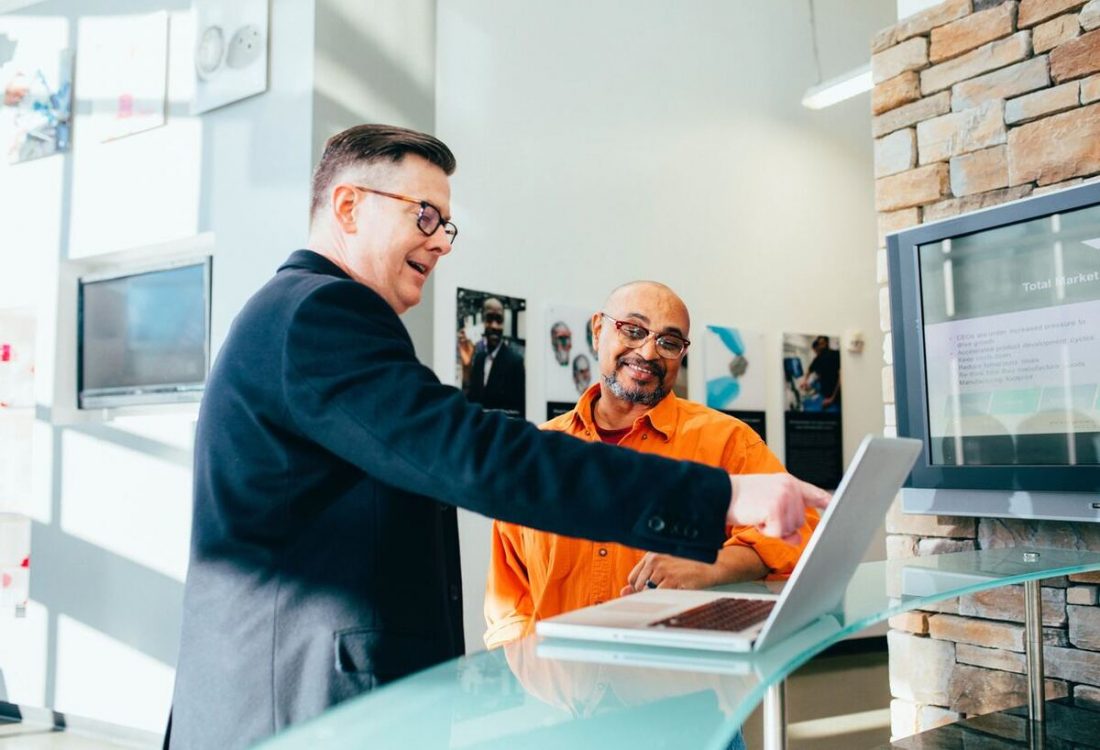Sustainability is firmly on the C-suite agenda, with most leaders now asking, “What can I do so that my organization will stand on the right side of history?”
Business is a powerful engine for systems change, being uniquely placed to deliver transformation at scale. It is undeniable that when we work with others, there is exciting potential for us to accelerate action and shape a more sustainable future through radical collaboration.
To move from incremental change to sustainability transformation, building organizations that are regenerative, restorative and resilient, leaders must ask themselves and their organizations what sustainability challenges are they in position to solve. With clarity of this purpose, we can align with allies who share our goal.
From competition to collaboration
Urgent systems change requires a bold rethink of how businesses operate as an ecosystem. We must collaborate, not compete. Curiously, the word ‘competition’ has its etymological roots in the Latin ‘com-petere’ which means ‘to seek or strive together’. By training together, classical athletes would push each other to reach levels otherwise unattainable, had they trained alone.
When it comes to sustainability, we don’t have time to jealously guard IP or aim to be a category of one.
Reclaiming this philosophy would be a powerful move for modern business. By bringing the brightest minds together toward a shared goal and sharing our resources, we will do our best work. When it comes to sustainability, we don’t have time to jealously guard IP or aim to be a category of one.
We need business leaders to embrace this thinking and focus on radical collaboration, not competition. This is one of the eight levers for change – each accompanied by a set of high impact actions – in Brandpie’s new playbook, Levers for Change: Accelerating Sustainable Action.
What is radical collaboration?

In the corporate world, organizations collaborate in many ways, from joint ventures to charity partnerships. When we talk about radical collaboration, we need to think about the transformation needed to shape a sustainable future. With this as our shared goal, how can we reimagine how we work with others to translate ambition into action, and do so at scale?
Ultimately, radical collaboration enables organizations to leverage their ecosystems to create and innovate to deliver lasting positive impact. This is not just about altruism. A phrase I love, often used by sustainability professionals, is to think about partnerships through the lens of ‘acting out of enlightened self-interest’.
Emerging from the COVID-19 pandemic, there is an opportunity for us to reflect on what was possible through collaboration. We did things across geographies and boundaries that we never thought possible, and we moved extraordinarily fast.
Radical collaboration is about the who, just as much as the how.
There are lessons to learn from successes and failures to act, just as there are lessons from military strategy that would serve us well when we think about the climate crisis. We need to be braver in iterating fast and working with emergent strategy.
Radical collaboration is about the who, just as much as the how. In nature, the greatest biodiversity occurs at the edge of two ecosystems, otherwise known as the edge effect. If we apply this principle in business, we must strive to empower cross-pollination of ideas and expertise.
Within organizations, how can we break free of our siloes and harness the collective intelligence of our people and supply chains? How can we design more inclusive strategies and seek to bring in voices who are not represented in the room?
As we establish partnerships, how can we connect with unlikely players and engage with those competitors who we would historically exclude? Moreover, we need to remember our ecosystems are made up of people and think about how we collaborate inside our business, just as much as with external actors.
Unite business voices and purpose to be better advocates
It is understandable that corporate lobbying has become a dirty word and a huge source of public mistrust. Yet I am hopeful about the rise of business advocacy for a sustainable outcome. As organizations step up to define their roles as corporate stewards, they need to be asking themselves who it is that they are serving.
This year a Globescan report found that seven in 10 people surveyed believe that businesses should speak out on the United Nations sustainable development goals and take a stance in actively supporting government action on climate change. There are a growing number of businesses who are using their expertise, voice and platform to inform and influence systems change.
Radical collaboration is a powerful way to amplify your message and reach while also combating a justifiable perception that businesses act out of self-interest. As a tutor for the Cambridge Institute of Sustainable Leadership, I am inspired by the work of the Corporate Leaders Group. Collectively, its 200 business members strive to work with policy makers toward economic renewal and climate neutrality.
Sector groups are highly effective in giving business a strong collective voice. Two examples driving change and pushing for stronger legislation are the Sustainable Beauty Coalition and Bankers for Net Zero. Where no one business owns the collaboration, the message becomes more powerful and credible.
Being radical needs bold leadership

It is easy for business and government to default to an overused narrative that innovation is the only answer. In fact, we have extraordinary science and technology at our fingertips. So much so that the latest IPCC report states that despite being at code red for humanity, we have the solutions we need to solve the climate crisis.
We need to scale innovation, rather than create new monopolies. The race to net zero draws a line in the sand, providing clarity on where we need to get to. As organizations focus on this urgent goal, we must be aware of the risks posed by mass ‘carbon tunnel syndrome’, which overlook the interconnected human side of the challenge.
The reasons we are not moving fast enough speak to the humanity of our leaders, not their technical competency.
It’s time for business and government to be better leaders, taking the solutions we have to scale, being courageous in the solutions we back, and unlocking flows of capital toward delivering the sustainable development goals. The reasons we are not moving fast enough speak to the humanity of our leaders, not their technical competency.
What is needed now is bold leadership, responding to the systemic challenges of our time. We need to embrace radical collaboration that will unlock sustainable action. Doing so will take all our courage, creativity and compassion, yet here are five steps we can take today:
- Shift your mindset to make your organization’s purpose serve being the best for the world instead of the best in the world. Be a trailblazer and pave the way for others, rather than aiming to be in a category of one.
- Make your successes open-source, and celebrate getting there first, instead of hindering the progress of others. More than this: Be courageous in sharing learnings from failures.
- Reflect on your response to the pandemic. There are lessons on how to respond to the climate crisis with speed and at scale through collaboration.
- Collaborate with your competitors to drive systems change.
- Work with momentum, understand who is driving change in your field and which movements you can support, or identify where the gaps are and start building something new.
Louisa Harris is Head of Sustainability & Systems Change at Brandpie, a business transformation consultancy. For more than a decade, her work has focused on helping organizations think about purpose through the lens of sustainability, to step up as corporate stewards, define bold ambitions and accelerate sustainable action. She also is a Sustainable Business Tutor at Cambridge Institute for Sustainability Leadership and Trustee at Hawkwood: Centre for Future Thinking.







